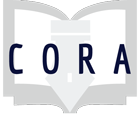Assignment
Problem-based Scenarios for Library Instruction
The goal of this activity is to explore spaces, services, and information literacy (IL) concepts through problem-based scenarios, guided discovery, and peer teaching. Ideal for orientations for K-12, undergraduate, transfer, or graduate students, but can also be used for instruction requests with no clear research assignment or at the start of a research project. Students work in groups to find solutions to a scenario using guided directions and tools, and then teach the rest of the class based on their findings. The activity takes approximately 30-45 minutes, including student presentations, depending on class size and complexity of scenarios.
| Attachment | Size |
|---|---|
| 26.62 KB |
After this activity, students will be able to:
● Describe study spaces and services within the library
● Navigate the library’s website
● Describe how the library provides resources necessary for academic success
Information Literacy concepts:
Individual or Group:
Scenarios in the lesson plan have been used for a first-year English Composition course with about 15 students and no research assignment, but the instructor wanted a broad overview of the library, and a new student orientation for 30 transfer students.
Timing: Works best when scenarios take approximately the same amount of time for each group to explore and answer the So What? question. Or, have a back-up activity or task for students to work on if their group finishes early.
Complexity and discovery: In crafting your scenario and guided instructions, think about what students might already know and how they can use that knowledge to think about libraries and information literacy in new ways. The goal of the scenario should be more than just completing a simple information retrieval task or learning how an information system works. Focus on getting students started by suggesting tools and strategies they may be unfamiliar with, but encourage students to explore, discover, and reflect on the scenarios in relationship to their own processes and experiences.

